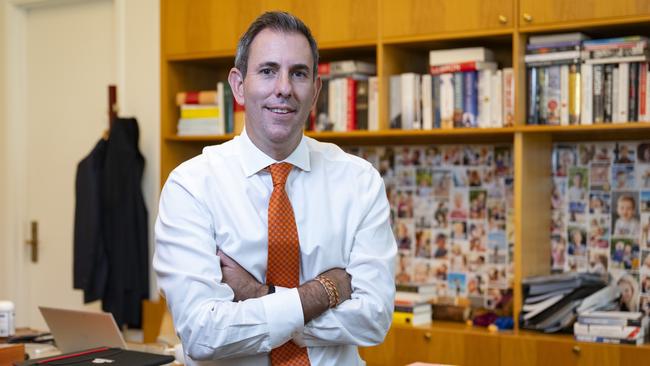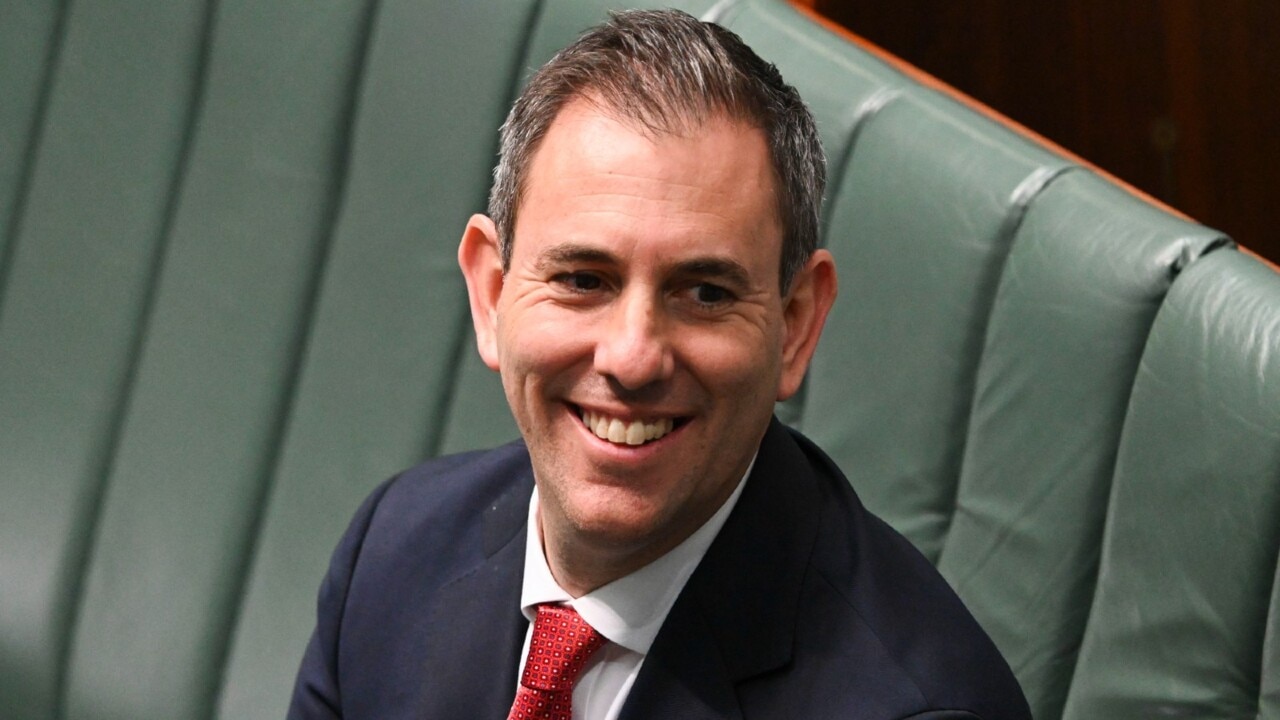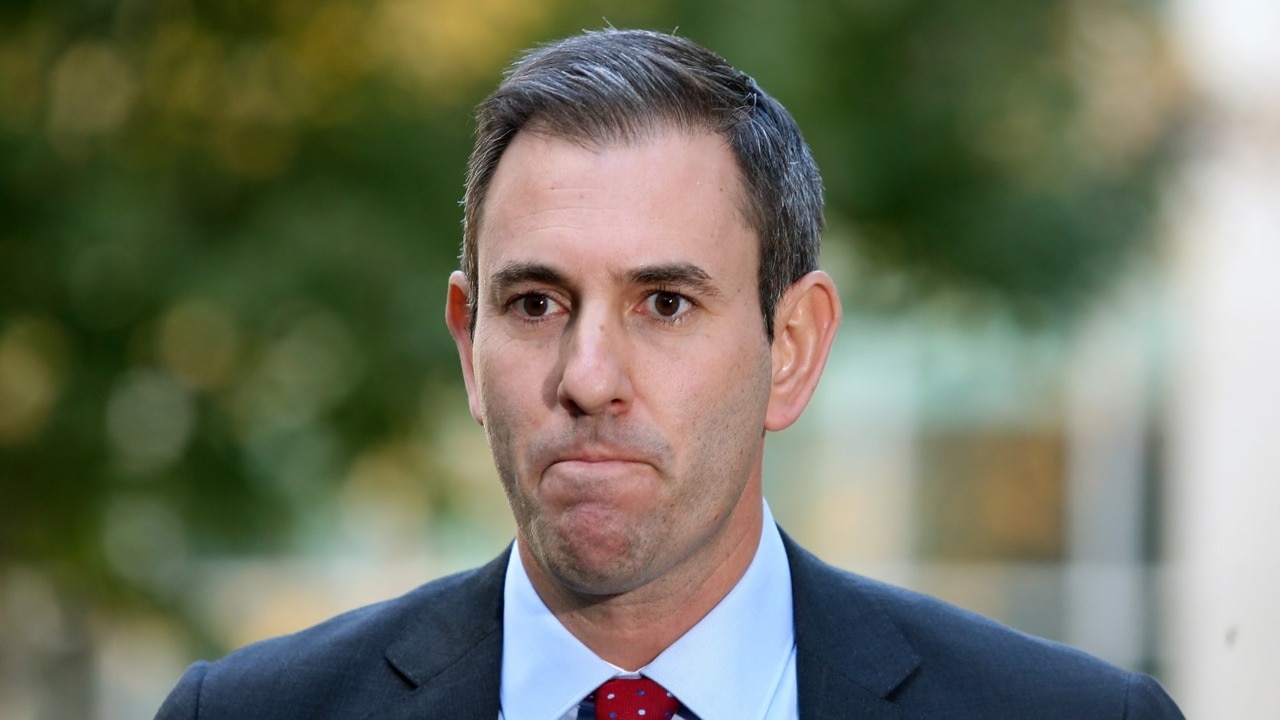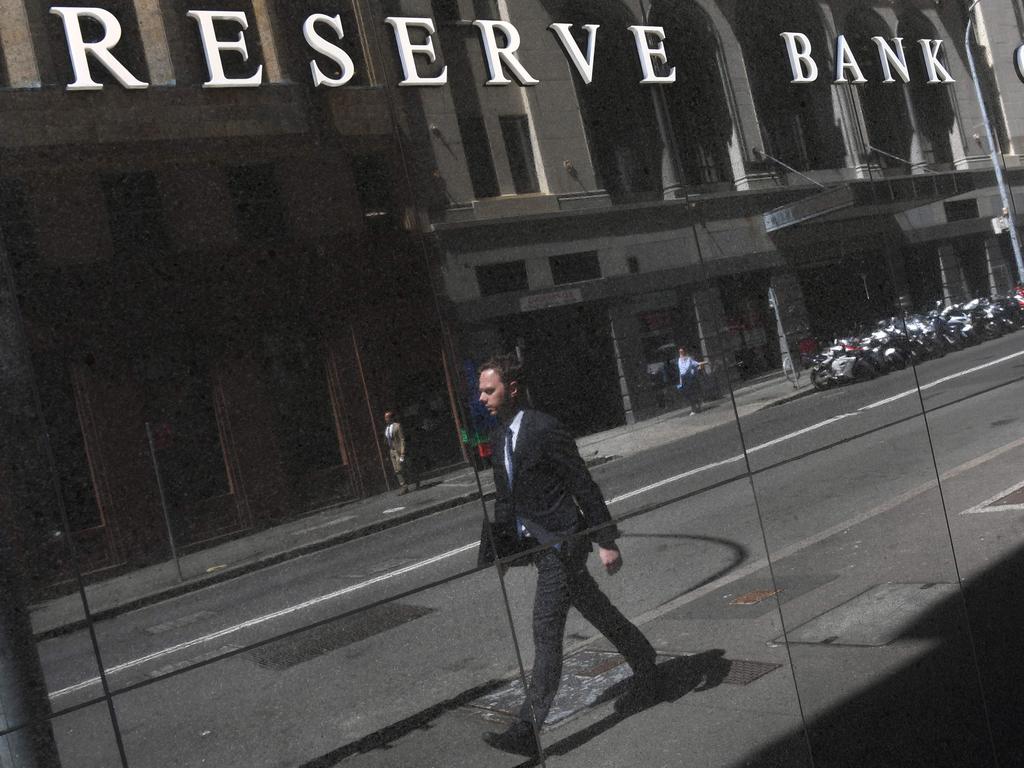MYEFO: Trust us with your tax, says Jim Chalmers
Jim Chalmers will use Wednesday’s mid-year budget update to burnish Labor’s claim to be responsible economic managers, but will not predict a second straight surplus for this financial year.

Jim Chalmers will use Wednesday’s mid-year budget update to burnish Labor’s claim to be responsible economic managers, with Treasury figures to show the Albanese government has allowed more than 90 per cent of booming tax revenues to fall to the bottom line.
As Reserve Bank governor Michele Bullock assured Australians that the central bank was not “falling behind” the rest of the world due to its “cautious approach” to fighting inflation, the Treasurer said fiscal and monetary policies were in lockstep.
“By returning the majority of revenue upgrades to the budget, we’re helping to take pressure off inflation, get debt on a better trajectory, and avoid billions of dollars in interest costs,” Dr Chalmers said.
“We know people are still under pressure but inflation is moderating, wages are growing and unemployment is low. There’s no shortage of challenges in the budget or the economy but the mid-year budget update will show we are making welcome and encouraging progress.”
The jobs boom accounts for a third of revenue upgrades over the four-year forward estimates period, Treasury calculates, with soaring commodity prices also underwriting a historical fiscal turnaround over the past 18 months.
While Dr Chalmers has flagged a substantial improvement in this financial year’s projected $13.9bn deficit, he has said MYEFO will not predict a second consecutive surplus in 2023-24.
Under pressure from Labor backbenchers to expand targeted cost-of-living relief measures to capture more Australians, Finance Minister Katy Gallagher said the government was keeping a “watching eye on what we need to do to make sure that we are easing the pressure on households”.
Any moves to expand cost-of-living relief and extend energy bill support are expected to be made ahead of next year’s May 14 budget, the final scheduled budget before the 2025 federal election.

With the budget already running $9bn ahead of forecast in the financial year to October, Westpac senior economist Pat Bustamente said he anticipated the commonwealth would record a surplus of $11bn for 2023-24.
Mr Bustamente backed the government’s decision to save most of the windfall tax gains from rapid population growth, elevated export prices and the strong jobs market. “This will help ensure monetary and fiscal policy are working in tandem and will put us in a stronger financial position to weather future challenges,” he said.
Data on Wednesday morning is expected to show inflation in the US returning to close to 3 per cent in the year to November, against Australian consumer price growth of just under 5 per cent, raising questions of whether the RBA is moving too tentatively to tame price pressures despite the most aggressive rate hike cycle in a generation.
The US Federal Reserve has pushed its policy rate to 5.25-5.5 per cent, or around a percentage point higher than the RBA’s cash rate of 4.35 per cent.
Ms Bullock at a conference in Sydney on Tuesday said: “I don’t think we’re falling behind at all. I think we are trying to make sure that we slow the economy enough to bring inflation down to our target band, (and) provided inflation expectations don’t get out of control, and they’re not at the moment, we think we can do that in the next couple of years.
“And we can do that while preserving the employment gains that we’ve won through the pandemic and coming out of the pandemic. I think we’ve taken a cautious approach and we’ll continue to watch the data.”
Peter Dutton on Tuesday warned the government’s new migration settings, included in MYEFO, would “put huge pressure on housing”.

“If you think it’s hard to buy a house now under Labor, if you think it’s hard to pay the mortgage under Labor, it’s going to continue to get harder over the coming years,” the Opposition Leader said.
“The decisions that they’ve made in two budgets, and now in the run-up to MYEFO as well, all of those decisions are making it harder, not easier, for Australian families, and that’s the complete opposite of what the Prime Minister promised the Australian public.”
Business Council of Australia chief executive Bran Black said: “We need MYEFO to begin to address the unsustainable growth in programs like the NDIS. We are concerned about an even more difficult 2024 unless the government reshapes its business agenda, eases the burden of regulation and puts in place more competitive settings.”
Senator Gallagher said funding elements of the national cabinet NDIS deal announced last week would appear in the next budget.
Economist Chris Richardson said the government “should enjoy the budgetary luck while it lasts because it won’t last forever”.
“As I’ve said about the budget for a while now, luck’s a fortune, but it’s not a strategy,” Mr Richardson said.







To join the conversation, please log in. Don't have an account? Register
Join the conversation, you are commenting as Logout